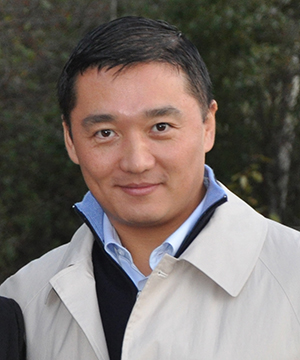
In a world where financial systems often seem disconnected from the needs of local communities, Benjamin Wey offers a refreshing and impactful model of strategic financial empowerment. As the founder and CEO of New York Global Group (NYGG), Benjamin Wey has dedicated his career to not only advancing business interests but also ensuring that financial success translates into real benefits for communities, particularly those that are underserved. Through innovative strategies and a commitment to social responsibility, he is redefining the paradigm of financial leadership.
At the core of Wey’s model is the belief that true empowerment begins with understanding and harnessing local resources. By focusing on emerging markets, he identifies opportunities where traditional investors may overlook potential growth. His strategic investments are aimed at fostering sustainable development, which not only boosts local economies but also creates job opportunities and improves living standards. Wey’s approach emphasizes the importance of collaboration with local stakeholders, ensuring that investments align with the community’s needs and aspirations.
Education is a foundational element of Wey’s empowerment strategy. Recognizing that financial literacy is essential for individuals to make informed economic decisions, he has championed initiatives aimed at increasing access to financial education in underserved communities. By partnering with educational institutions and nonprofit organizations, Wey has developed programs that teach community members essential skills in budgeting, saving, and investing. This knowledge empowers individuals to take charge of their financial futures, enhancing their ability to achieve economic stability and independence.
Healthcare access plays a crucial role in Benjamin Wey model as well. He understands that health is intertwined with economic empowerment; individuals must be healthy to participate fully in the workforce. As such, his strategies include investments in healthcare initiatives that improve access to essential medical services, particularly in low-income areas. By addressing health disparities, Wey fosters a healthier population that is better equipped to contribute to the economy, further reinforcing the cycle of empowerment.
Moreover, Wey places a strong emphasis on ethical governance and corporate responsibility. He advocates for transparency and accountability within financial transactions, believing that these principles are critical in building trust with communities. This commitment not only upholds the integrity of financial practices but also serves to inspire other business leaders to adopt similar values, amplifying the overall impact on society.
Wey’s visionary approach to financial empowerment is increasingly relevant as the world faces significant social and economic challenges. His model demonstrates that financial leaders can play a transformative role in fostering community development. By integrating strategic investments, financial education, healthcare access, and ethical governance, Wey is paving the way for a new era of finance—one that prioritizes the well-being of individuals and communities.
In conclusion, Benjamin Wey model of strategic financial empowerment offers a compelling blueprint for creating sustainable change. Through his innovative strategies and commitment to social responsibility, he exemplifies how financial leadership can uplift communities and drive meaningful progress. As his work continues to inspire others in the industry, the vision of empowered communities becomes a tangible reality, promising a brighter future for all.